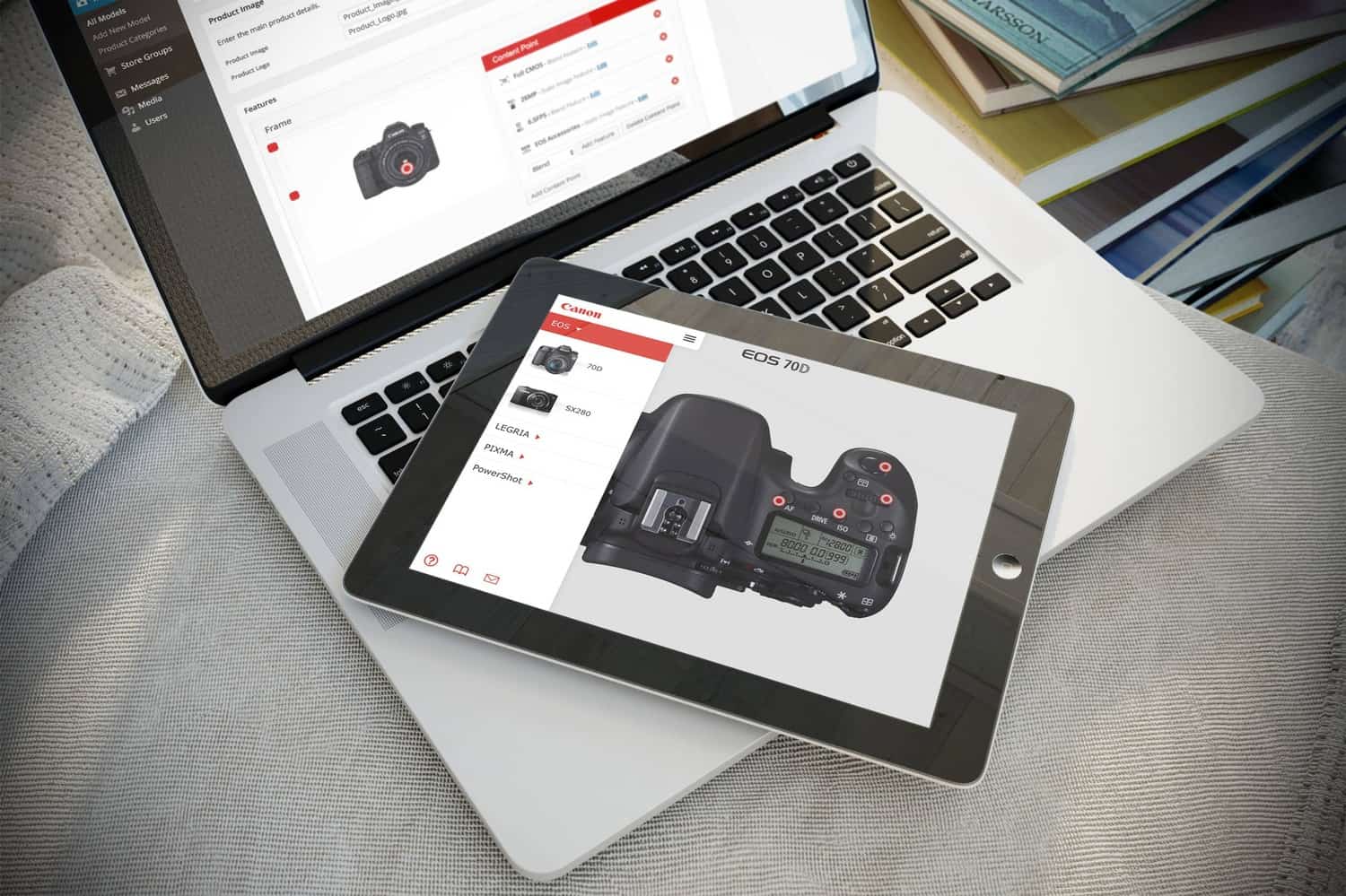5 Reasons Every Business Should Focus on Mobile App Development
Mobile apps are everywhere, and for good reason.They're not just for scrolling through social media or playing games—businesses are harnessing their power to connect with customers, streamline their operations, and boost growth. With over 6.3 billion smartphone users worldwide, the potential of mobile apps in the business sector is enormous and still expanding. This guide is all about unlocking that potential, making now the perfect time for businesses, particularly small to medium-sized enterprises, to tap into mobile technology. This guide offers you the insights and strategies needed to effectively leverage mobile apps for your business success.
While most small businesses recognise the importance of a mobile app, few have actually made strides in creating one. According to a poll conducted by Endurance International Group, 71 percent of small businesses realise that a mobile app will benefit their business, and yet 78 percent don’t currently have an app. However, as the world becomes increasingly mobile, offering apps to customers may no longer be optional. Here are some of the main reasons your business needs to create a mobile app.
Optimising Business Mobile App Development: A Comprehensive Guide
The Importance of Mobile Apps for Businesses
The mobile app development market has experienced exponential growth, driven by the increasing reliance on smartphones for everyday tasks. For businesses, mobile apps not only enhance customer engagement but also serve as powerful tools for marketing, sales, and customer service.
Key Statistics Highlighting Mobile App Usage
- According to recent data, mobile users downloaded approximately 27.8 billion apps from Google Play in just one quarter, indicating the massive reach and potential of mobile apps for businesses.
- The popularity of mobile apps is further underscored by their preference over desktop websites, with users spending more time on apps due to their convenience and speed.
Why Your Business Needs a Mobile App
Enhanced Customer Engagement
Mobile apps offer various tools that can significantly enhance customer engagement. Features such as push notifications provide timely updates and reminders to users, keeping them connected and informed about the latest deals, offers, and more. This constant interaction helps in maintaining the relevance of the business in the consumers’ minds, thereby increasing the likelihood of customer retention.
Increased Sales
With features like one-touch payment, easy navigation, and the ability to browse products and services anytime, anywhere, mobile apps can significantly enhance the shopping experience. This convenience often leads to increased sales and higher revenue for businesses.
Improved Customer Service
The convenience of mobile apps extends to customer service. With features like in-app messaging, support tickets, and chatbots, businesses can offer round-the-clock assistance to their customers. This responsiveness not only improves customer satisfaction but also builds trust and loyalty towards the brand.
Facilitating Personalized Marketing
Mobile apps have opened up new avenues for personalised marketing. By analysing user behaviour and preferences, businesses can tailor their promotional activities to suit the needs of individual customers. Personalization boosts the effectiveness of marketing campaigns and increases the chances of converting leads into sales.
Competitive Advantage
A well-designed app can set your business apart from competitors, particularly if they do not yet have a robust mobile presence.
Mobile apps increase engagement and satisfaction among customers.
- You’ll provide better customer service. Customer service is one of the most important aspects of running a thriving company, and yet, customers seem to grow more demanding every day. With an app, you can provide on-demand customer service, so customers can receive support from wherever they are, all from their mobile device.
- It makes shopping easy. A mobile app can enable shopping from mobile devices, which has the potential to boost sales. Online shopping has grown tremendously popular over the years, and according to the Wall Street Journal, the majority of customers prefer to conduct their shopping online. A mobile app gives customers an entire shopping mall in the palm of their hand, allowing them to browse product selections, find coupons, and order items from their phone or tablet.
- You’ll keep customers connected to your store. Apps have the potential to connect your customers to your products and increase sales. Kraft came out with iFood Assistant, an app that offers recipes to users based around Kraft food products, while providing coupons to encourage sales and share features to magnify their social media impact. Businesses that offer apps can keep customers connected to their products, while greatly influencing social media shares as well.
- You’ll improve customer engagement. A mobile app offers your company with an opportunity to connect to your customers in real-time. Not only will it provide the profile information of customers, allowing you to engage with them on a more personal level, but it also provides locational information. One way businesses have leveraged locational data is by planting devices throughout their store that pick up on the location of the customers in relation to the products. The app can then send coupons or promotions to customers based on their location in the store.
- It improves marketing. With a mobile app, you can market directly to each individual customer. It makes it easier to personalise a marketing strategy, since you can collect personalised data from each phone, thus tailoring your marketing campaign to the interests of each unique customer. As the app collects data about the interests and hobbies of customers, you can create product recommendation, offer coupons, and apply discounts based on their interests, which will greatly improve your potential for sales.
Step-by-Step Guide to Developing a Mobile App
Developing a mobile app can seem daunting, but with a structured approach, it can be broken down into manageable stages:
- Establish Your Goals
Setting clear objectives early on will guide the entire development process and help in measuring the success of your app. - Understand Your Audience
Knowing your target users’ preferences and behaviour will inform features and design choices that meet their needs. Utilising psychological principles can further enhance user engagement and retention, tailoring the user experience to evoke positive responses and habitual use. - Choose the Right Technology
Decide which technology best suits your needs based on your budget, time constraints, and functionality requirements:
- Native Apps: Built for specific platforms like iOS or Android, offering high performance and a polished user experience but may require more time and budget.
- Hybrid Apps: Provide a balance between cost and usability, using a single codebase to deploy across multiple platforms, which can reduce development time and costs.
- Web Apps: Accessible on any device through a web browser, offering the widest reach with a lower upfront investment but potentially less control over performance.
- Native Apps: Built for specific platforms like iOS or Android, offering high performance and a polished user experience but may require more time and budget.
- Design for User Experience
A user-friendly design is crucial for engagement. Focus on intuitive navigation and a clean interface. - Partner with an App Development Company
Collaborating with a seasoned app development company can elevate the quality and functionality of your mobile app. This collaboration not only infuses your project with the latest technologies but also provides access to industry insights, ensuring your app is built with professional expertise and innovative solutions. - Develop and Test
Build the app with a focus on quality and performance. Testing is crucial to ensure there are no bugs or usability issues. - Launch and Promote
Once your app is ready, plan a launch that includes strategic app marketing techniques to maximise visibility and downloads. Effective promotion strategies include:
- App Store Optimisation (ASO): Enhance app visibility in app stores through optimised titles, keywords, descriptions, and visuals.
- Social Media Campaigns: Utilise platforms like Facebook, Instagram, and Twitter to engage potential users and drive downloads.
- Influencer Partnerships: Collaborate with influencers who can authentically promote your app to their followers.
- Press Releases and Media Outreach: Generate buzz by getting featured in tech blogs, magazines, and other media outlets.
- Email Marketing: Leverage your existing customer base with targeted emails that announce your app launch and offer exclusive promotions.
- App Store Optimisation (ASO): Enhance app visibility in app stores through optimised titles, keywords, descriptions, and visuals.
- Maintain and Update
Regular updates keep the app functional and relevant, encouraging continued user engagement.
Advanced Features to Consider
To truly make your app stand out, consider integrating advanced features that enhance functionality and user engagement:
- AI and Machine Learning: For personalised experiences and predictive analytics.
- AR/VR: To offer immersive experiences that can enhance user interaction, especially in fields like real estate or retail.
- IoT Integration: For apps that interact with smart devices, providing users with innovative ways to control their environment.
Implementing these advanced features requires a thoughtful approach:
- User Needs and Business Goals: Align features with user needs and business objectives. Advanced features should solve specific problems or enhance the user experience in meaningful ways.
- Data Privacy and Security: With increased personalization and integration, ensuring data privacy and security becomes paramount. Implement robust security measures like encryption and secure payment gateways to protect user data, especially when dealing with IoT devices and personal health information.
- Testing and Quality Assurance: Rigorous testing is crucial, particularly for AR/VR and IoT applications, to ensure they perform well across different devices and environments without draining battery life or causing performance issues.
Conclusion
The development of a mobile app for your business represents a significant investment in your digital strategy. By focusing on user experience, leveraging advanced technologies, and maintaining an ongoing commitment to improvement, your app can significantly contribute to your business’s success.
If you're looking to develop a mobile app for your business, it's crucial to partner with a skilled app development team that understands your business needs and can translate them into a successful mobile application. Glance Group Ltd integrates the principles of psychology and user behaviour into its app design and development processes. Specialising in crafting mobile solutions that are technologically advanced and psychologically attuned to user needs, Glance ensures deeper and more meaningful user interactions.
Contact us today to discuss how we can help bring your app idea to life and transform your digital strategy.
Frequently Asked Questions
Mobile app development involves creating software applications that run on mobile devices. It typically consists of designing interactive user experiences, developing the functionality of the app, and ensuring compatibility across various mobile platforms such as iOS and Android.
A mobile app can enhance your customer engagement, improve service accessibility, increase sales, and offer a competitive edge by providing a direct channel to your customers. Apps also allow for personalised marketing opportunities and improved customer insights.
The cost of developing a mobile app can vary widely based on several factors including the app’s complexity, features, platform (iOS, Android, or both), and the geographic location of your development team.
The development time for a mobile app depends on its complexity and scope. A basic app might take 3 to 6 months to develop, while more complex apps could take 9 months or more. The timeline also depends on the design process, testing, and feedback iterations.
Yes, mobile apps can be designed to integrate seamlessly with your existing business systems such as your CRM, ERP, or e-commerce platforms. This integration can help streamline operations and provide a unified experience for users.
Key features depend on your business needs but typically include user registration, profile management, push notifications, social media integration, payment gateway integration, and analytics. Additional features can be customised based on the specific interactions you want to enable for your users.
Ensure your app is optimised for the app store with the right keywords, descriptions, and visuals. Regular updates, responding to user feedback, and marketing campaigns across various channels can also increase visibility and downloads.
Native development involves creating apps specifically for one platform using the specific programming languages and tools designed for that platform (iOS or Android). Cross-platform development uses technology that allows apps to be developed for multiple platforms using one codebase, which can be more cost-effective and quicker.
Success can be measured through app analytics, user feedback, number of downloads, user retention rates, and the effectiveness of the app in achieving your business goals such as increased sales, improved customer engagement, or operational efficiencies.
After launch, your app will need regular updates to fix bugs, improve functionality, and add new features based on user feedback. Regular monitoring for security threats and performance issues is also essential to maintain a good user experience.
Share this
Subscribe To Our Blog
You May Also Like
These Related Stories

The Ways Modern Retail Stores Are Leveraging App Development

Retail Mobile Apps: The Cost of Developing One Like Canon





